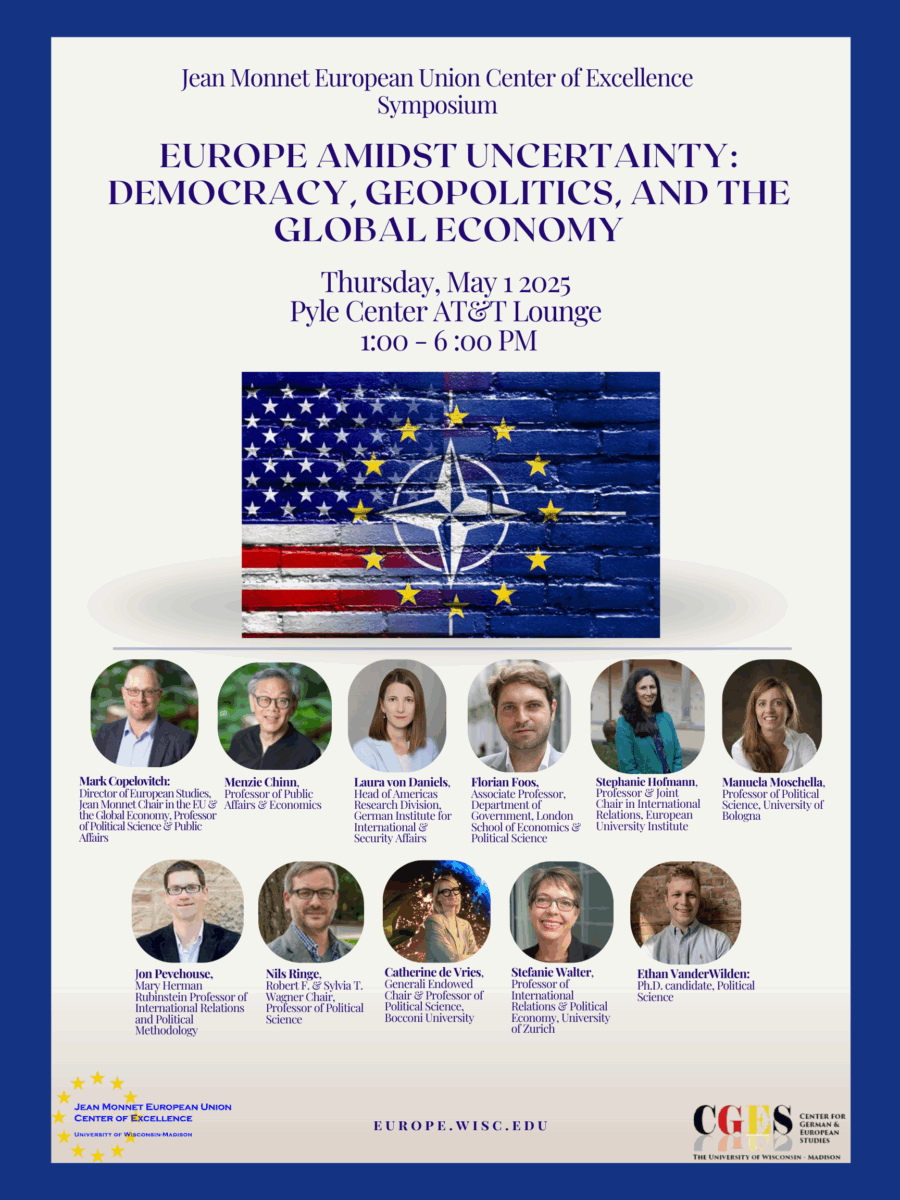[ad_1]
Thursday, May 1, 2025 at the Pyle Center, UW Madison.
1:00: Welcome and introduction
- Mark Copelovitch, Director of European Studies and Jean Monnet Chair
1:05-2:30: Europe and the euro in the global economy
How are current developments in the global economy affecting Europe? How should the European Union and its members respond to Donald Trump’s tariffs and the threat of a global trade war? To what extent does the United States’ embrace of tariffs and economic nationalism present Europe with an opportunity to assume a greater leadership role in global economic governance? What are the monetary, financial, and trade consequences of the Russia-Ukraine war for the EU? What does all of this mean for European Monetary Union and the euro’s role in the global financial system?
Panelists
- Menzie Chinn, La Follette School and Economics
- Manuela Moschella, University of Bologna
- Mark Copelovitch, Political Science and La Follette School
- Chair: Jon Pevehouse, Political Science and La Follette School
Break 2:30-2:45
2:45-4:15: Populism, democracy, and the economy in Europe
What is behind the rise in public support for far right and populist parties across Europe in the last decade? To what extent is this related to the economic shocks of the last several years? Which groups and voters are most likely to support populist and far right parties, and why? What role does media coverage and social media play in these developments? How have mainstream political parties responded to the populist authoritarian challenge?
Panelists
- Catherine de Vries, Bocconi University Milan
- Stefanie Walter, University of Zurich
- Florian Foos, London School of Economics
- Chair: Nils Ringe, Political Science
Break 4:15-4:30
Panel 3, 4:30-6:00: Transatlantic Relations in Uncertain Times
Europe finds itself facing unprecedented challenges in 2025. The foundations of European security and prosperity – NATO, American hegemony, the centrality of transatlantic economic and security ties, and the absence of war on the Continent – are crumbling. If the post-WWII US-led liberal order is collapsing, it remains unclear what will replace it. How should we understand the domestic and international politics of transatlantic relations in uncertain times? What should the European Union and its members do to meet the new geopolitical, security, and economic challenges
Panelists
- Laura von Daniels, German Institute for International Affairs (SWP), Berlin
- Stephanie Hofmann, European University Institute
- Moderator: Mark Copelovitch
[ad_2]
Source link





